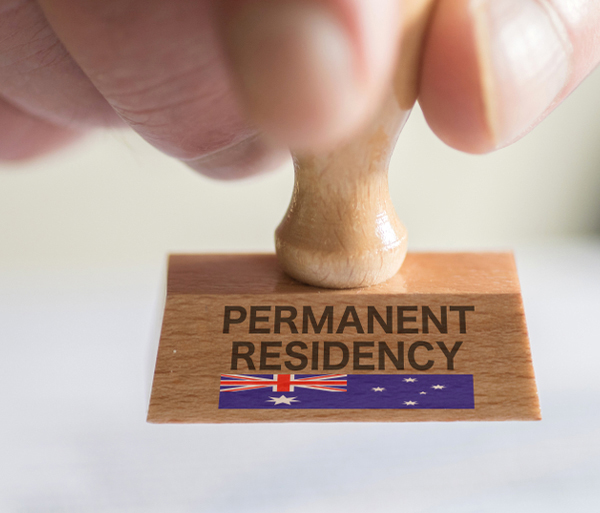Permanent Resident vs. Citizen
One common question is the difference between citizen vs permanent resident. While both have the right to reside in a country, a citizen enjoys additional privileges such as voting rights, a national passport, and often fewer travel restrictions. In contrast, permanent residents must renew their status periodically and may have limitations on their political rights, military service, and social benefits eligibility.
Permanent Residency in Saudi Arabia
Saudi Arabia offers several pathways to permanent residence. The government has introduced the Saudi premium residency program to attract skilled professionals and investors. This program allows individuals to live and work in Saudi Arabia without the need for a local sponsor, which is a major advantage over traditional residency permits.
Saudi Permanent Residency Requirements
To qualify for permanent residence in Saudi Arabia, applicants must:
 Have a clean criminal record and no history of legal violations.
Have a clean criminal record and no history of legal violations. Provide proof of financial stability and economic contribution.
Provide proof of financial stability and economic contribution. Demonstrate a valid reason for residency, such as employment, business investment, or family reunification.
Demonstrate a valid reason for residency, such as employment, business investment, or family reunification. Pay the necessary fees associated with Saudi premium residency, which varies depending on the type of residency chosen.
Pay the necessary fees associated with Saudi premium residency, which varies depending on the type of residency chosen. Meet health and medical fitness standards.
Meet health and medical fitness standards.
How to Get Permanent Residency in Saudi Arabia?
The process of obtaining Saudi permanent residency includes:
 Eligibility Check – Ensure that you meet the qualifications for the Saudi premium residency program.
Eligibility Check – Ensure that you meet the qualifications for the Saudi premium residency program. Submit an Online Application – Complete the required forms and upload necessary documents on the official Saudi residency portal.
Submit an Online Application – Complete the required forms and upload necessary documents on the official Saudi residency portal. Document Verification – Provide identification, proof of income, business investments, and other supporting materials.
Document Verification – Provide identification, proof of income, business investments, and other supporting materials. Pay Residency Fees – The fees for Saudi permanent residency can be high, depending on whether you choose temporary or lifetime residency.
Pay Residency Fees – The fees for Saudi permanent residency can be high, depending on whether you choose temporary or lifetime residency. Approval Process – Authorities review the application and conduct background checks before granting residency.
Approval Process – Authorities review the application and conduct background checks before granting residency. Receive Your Saudi Permanent Residency Card – Once approved, you will be issued a permanent resident certificate and residency card.
Receive Your Saudi Permanent Residency Card – Once approved, you will be issued a permanent resident certificate and residency card.
Saudi Permanent Residency Benefits
Holding a Saudi permanent residency offers several advantages:
 Ability to own real estate and invest in businesses.
Ability to own real estate and invest in businesses. Freedom to sponsor family members through a Saudi residence visa for family.
Freedom to sponsor family members through a Saudi residence visa for family. Exemption from needing a local employer sponsor.
Exemption from needing a local employer sponsor. Access to healthcare and educational facilities.
Access to healthcare and educational facilities. Ability to enter and exit Saudi Arabia without visa restrictions.
Ability to enter and exit Saudi Arabia without visa restrictions.
Permanent Residency in Europe
Many people seek permanent residency in Europe due to its high quality of life, strong economies, and numerous opportunities. Here are the top European countries offering permanent resident visas:
 Germany Permanent Residency
Germany Permanent Residency
Germany offers permanent resident status after five years of legal residence. Applicants must demonstrate financial stability, proficiency in German, and integration into society. The EU Blue Card provides an expedited pathway for highly skilled workers. France Permanent Residency
France Permanent Residency
In France, a permanent resident visa is available after five years. This status allows individuals to work and travel within the EU, with additional benefits like healthcare and social security. Italy Permanent Residency
Italy Permanent Residency
Italy grants permanent resident status to non-EU nationals who have lived in the country for five years. The Italian Golden Visa program also provides residency options for investors. Spain Permanent Residency
Spain Permanent Residency
Spain offers a permanent resident visa after five years of continuous residence. The Spanish Golden Visa program allows investors to gain residency through real estate investment. Netherlands Permanent Residency
Netherlands Permanent Residency
Applicants can apply for permanent resident status after five years if they meet income and language requirements. Entrepreneurs can apply through the Dutch startup visa program. Sweden Permanent Residency
Sweden Permanent Residency
Sweden provides permanent residency to those who have legally resided in the country for five years, with requirements to show integration and stable employment. Austria Permanent Residency
Austria Permanent Residency
Austria offers a permanent resident visa after five years of continuous legal residence, with pathways for skilled workers and investors. Switzerland Permanent Residency
Switzerland Permanent Residency
Switzerland grants permanent resident status after ten years of legal residence, with exceptions for EU citizens who can apply sooner. Belgium Permanent Residency
Belgium Permanent Residency
Belgium offers a permanent resident visa to those who have lived in the country for five years and meet integration requirements. Belgian residency is attractive for its high standard of living and central location in Europe. Portugal Permanent Residency
Portugal Permanent Residency
Portugal provides permanent resident status after five years, with an additional path through the Golden Visa program for investors who invest in real estate or businesses.
Steps to Obtain a Permanent Resident Visa
To acquire a permanent resident visa, applicants generally need to:
 Reside legally in the country for the required number of years.
Reside legally in the country for the required number of years. Demonstrate financial stability and maintain a clean criminal record.
Demonstrate financial stability and maintain a clean criminal record. Pass language and integration tests where applicable.
Pass language and integration tests where applicable. Submit a permanent resident certificate as proof of eligibility.
Submit a permanent resident certificate as proof of eligibility. Meet country-specific criteria, such as job experience, investments, or sponsorship requirements.
Meet country-specific criteria, such as job experience, investments, or sponsorship requirements. Pay applicable fees and maintain compliance with immigration laws.
Pay applicable fees and maintain compliance with immigration laws.
Conclusion
Understanding permanent residency is essential for those looking to settle in another country. Whether considering permanent residence in Saudi Arabia or a permanent resident visa in Europe, it is crucial to meet the required criteria.
If you are planning to move abroad, research the Saudi permanent residency benefits and European permanent residency options to make an informed decision. With the right preparation, you can successfully achieve permanent resident status in your desired country.

 English
English
 Hindi
Hindi
 Urdu
Urdu
 Arabic
Arabic
 Persian (Farsi)
Persian (Farsi)
 Pashto
Pashto
 Kurdish
Kurdish
 Hebrew
Hebrew
 Azerbaijani
Azerbaijani
 French
French
 German
German
 Spanish
Spanish
 Italian
Italian
 Portuguese
Portuguese
 Dutch
Dutch
 Polish
Polish
 Greek
Greek
 Romanian
Romanian
 Hungarian
Hungarian
 Czech
Czech
 Slovak
Slovak
 Nepali
Nepali
 Sinhala
Sinhala
 Tamil (Sri Lanka)
Tamil (Sri Lanka)
 Thai
Thai
 Malay
Malay
 Indonesian
Indonesian
 Khmer
Khmer
 Lao
Lao
 English (Canada)
English (Canada)
 French (Canada)
French (Canada)
 Swahili
Swahili
 Afrikaans
Afrikaans
 Xhosa
Xhosa
 Zulu
Zulu
 English (US)
English (US)
 Spanish (Mexico)
Spanish (Mexico)
 Portuguese (Brazil)
Portuguese (Brazil)
 Spanish (Argentina)
Spanish (Argentina)
 English (Australia)
English (Australia)
 Bengali
Bengali
 Chinese
Chinese
 Japanese
Japanese
 Korean
Korean
 Indonesian
Indonesian
 Uzbek
Uzbek
 Kazakh
Kazakh
 Tajik
Tajik

 Have a clean criminal record and no history of legal violations.
Have a clean criminal record and no history of legal violations.



